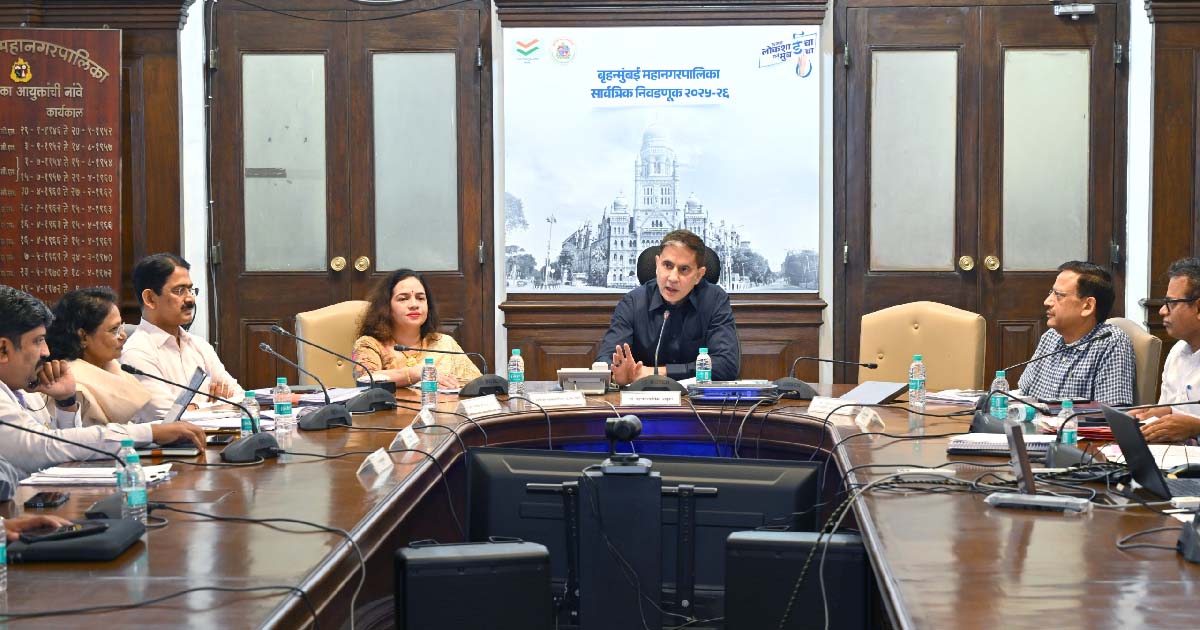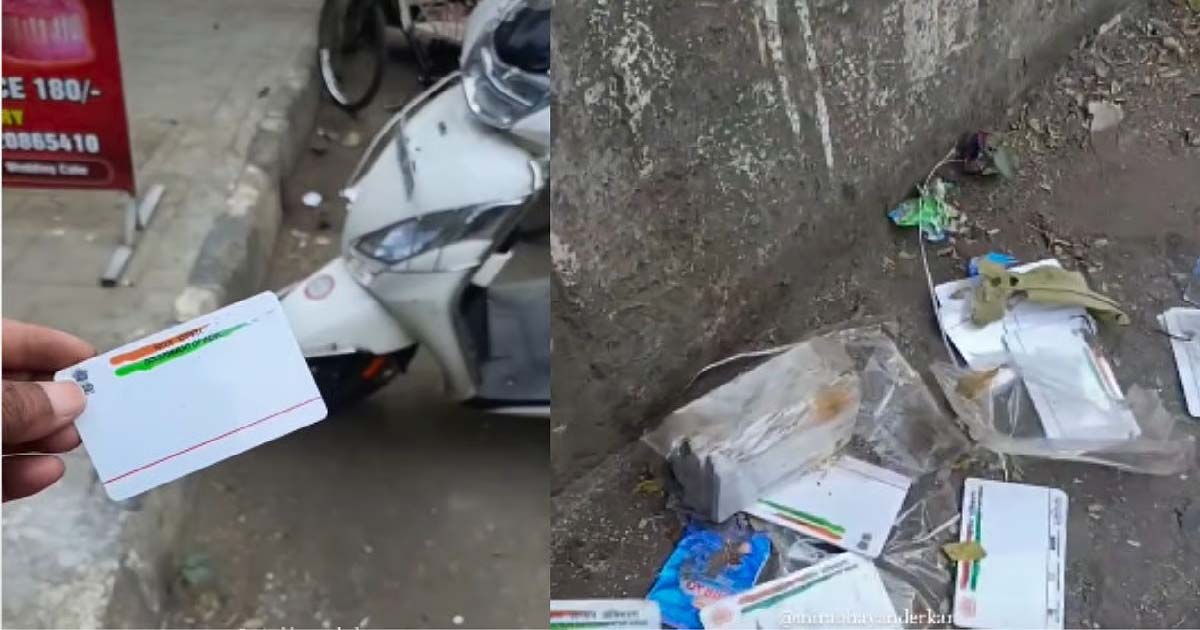Maharashtra
Sena Minister to SC: Probe NCB, Aryan Khan’s ‘fundamental rights breach’
In a significant development, a senior Shiv Sena leader urged the Supreme Court to order a probe by a sitting judge of the apex court into the affairs of Narcotics Control Bureau and violation of fundamental rights of Aryan Khan, son of Bollywood megastar Shah Rukh Khan.
Making the plea under Article 32 of the Constitution, Kishore Tiwari, accorded the Minister of State (MoS) status, has urged Chief Justice N.V. Ramana’s ‘top priority’ intervention into the manner in which the ‘biased’ NCB is hounding film personalities, models and other celebs since the past nearly two years with ‘malafide motives’.
He said that under Article 32, the Supreme Court and the Chief Justice of India (CJI) are duty-bound to take cognisance of every matter pertaining to the fundamental rights violation, as guaranteed under Part III of the Constitution, which the NCB is flouting.
Referring to the Special NDPS Court (Mumbai) deferring the verdict in the bail plea of Aryan Khan and other accused till October 20 citing public holidays, the plea said this has subjected the accused “to big humiliation and kept in jail in an undemocratic and illegal way” for 17 nights.
This is in utter disregard to the fundamental Right to Life and Liberty as enshrined in the Constitution and the question of ‘bail is the norm, jail is the exception’, which has been upheld and settled by SC many times, as reiterated by former Attorney General of India Mukul Rohatgi.
Accusing the NCB and its officials of ‘vendetta’ by targeting select celebs, Tiwari demanded a probe into the role of the central narcotics agency and the Mumbai Zonal Director (Sameer Wankhede), whose wife is a well-known Marathi filmstar, in direct competition with the other stars and celebs being hounded.
Pointing a needle of suspicion at Wankhede, the plea said the officer’s wife is trying to make big in Bollywood, and that’s why only leading names in the film industry, their families, national-international models, producers-directors are brought under the NCB lens.
“Starting with the probe into the Sushant Singh Rajput death case, the probe has been ‘totally diverted in an unrelated direction’ … The alleged NCB seizures are ‘miniscule jokes’ compared to the Mumbai Police achievements, or the DRI which last month seized 3000-kgs drugs from Mundra Port in Gujarat,” Tiwari said in the plea.
When the law has been settled by the highest court of the country, the NCB and the Special NDPS Court have “failed to give due regards” by depriving Aryan Khan and others bail, which could be done right away, even on public holidays, and thus there is ‘total miscarriage of justice’.
“With the recent shocking exposure on NCB by Maharashtra Minister Nawab Malik, its high time the NCB Mumbai and all-India must be probed by an SC judge to unravel the rackets and the truth…It’s a fit case for immediate intervention by the SC,” Tiwari demanded, among other things.
Contending the NCB’s grudge and autocratic style are even more glaring, the Sena leader added that no contraband drugs were recovered from Aryan Khan, there was no medical examination proving consumption, etc., yet he has been shunted into different types of custody since October 3, echoing former Attorney General of India Rohatgi.
After the NCB swooped on a luxury cruise ship to bust an alleged rave party on October 2, Aryan Khan, along with 7 others were detained, arrested on October 3 and have remained in NCB and judicial custody since for the past 17 days, with their bail order likely be delivered by Special Judge V.V. Patil on Wednesday (October 20).
Maharashtra
Mumbai: Rickshaw driver beaten up in Vikhroli on suspicion of child theft, burqa-clad driver did this to collect fare, police claim

Mumbai: Vikhroli Park Site, after the rumor of a child theft, chaos broke out and an auto rickshaw driver was attacked by a mob when he went to the street of Vikhroli Madina Masjid dressed in a burqa to collect his fare. During this, people suspected that the child had come to steal, after which the mob beat him up, but the police reached the spot and then took him into their custody. During interrogation, it was found that the child had not come wearing a burqa to steal but to collect the fare. He was dressed in a burqa so that no one would recognize him and he could easily collect his fare and go back, but unfortunately, the people caught him and the police took him out of the mob’s possession and safely took him to the police station. After that, the police confirmed that the child had not come to steal. Further investigation is underway in this matter. The police said that along with the investigation, it is also being found out whether he really came to collect the fare or not. He is a thief. Initial investigation has revealed that the child is not a thief. The police have confirmed that the rickshaw driver is not a thief.
Maharashtra
Municipal Corporation in Mumbai is committed to conducting administration and election process in a fearless, free and transparent environment: Bhushan Gagrani

Mumbai: Municipal Corporation Administration and Election System Mumbai Municipal Corporation is committed to conducting the election process for the general elections 2025-26 in a completely fearless, free, transparent and disciplined environment. In this regard, the Mumbai Municipal Corporation Administration has made all and extensive preparations and all necessary measures are being implemented effectively. The role of political parties is very important in the election process. In order to promote democratic values and make the election process fair, transparent and credible, all political parties, their office bearers and workers should strictly follow the code of conduct framed by the State Election Commission and cooperate with the Municipal Corporation Administration. A positive and exemplary example should be set in the electoral process, this appeal was made by Municipal Commissioner and District Election Officer Bhushan Gagrani. A meeting was held with representatives of political parties at the Municipal Corporation headquarters today in connection with the Mumbai Municipal Corporation general elections 2025-26. On this occasion, Gagrani presented detailed information about various administrative, technical and legal aspects of the elections.
Additional Municipal Commissioner (City) Dr. Ashwini Joshi, Special Duty Officer (Election) Vijay Balmwar, Joint Commissioner (Tax Assessment and Collection) Vishwas Shankarwar, Assistant Commissioner (Taxation and Collection) Gajanan Belle, UP Election Officer Vijay Kumar Suryavanshi and other office bearers and representatives of various political parties were present in the meeting. Political parties were provided detailed information about the offices of 23 Election Decision Officers and their scope of work for the smooth conduct of the elections. Along with this, guidance was also given on the process of filing nomination papers, scrutiny of applications, registration of objections and how to contact these offices for day-to-day work in the election process. Municipal Commissioner Shri said that all necessary arrangements have been completed at the level of the Election Decision Officer so that the candidates do not face any technical problems.
Additional Municipal Commissioner (City) Dr. Ashwani Joshi said that all guidelines have been given so that the candidates do not make any mistakes while filing nomination papers (candidate applications) for the elections. The concerned persons should submit all the information in the prescribed format. Candidates should take special care that no application is rejected due to technical difficulties. It is mandatory for the candidates to fill all the information correctly and clearly in the affidavit submitted with their application. He said that if any column is left blank in the affidavit or if incorrect information is found, the nomination of the candidate, along with all other matters, can be cancelled.
Joint Commissioner (Tax Assessment and Collection) Vishwas Shankarwar said that the main objective of the administration is to increase the voting percentage to strengthen democracy. For this, political parties should create awareness among the voters. Public awareness is being created among the voters under the ‘SVEEP’ program by the Municipal Corporation. Also, it is mandatory to follow the guidelines of the esteemed State Election Commission regarding election expenses. Candidates should keep a record of every expense incurred during the election campaign and submit the account of election expenses within the stipulated time. Various doubts raised by the representatives of political parties on various issues were cleared including caste verification certificate, toilet usage certificate, Appendix 1 and Appendix 2, appointment of representatives of election candidates.
Maharashtra
Mira Road: Bundles Of Blank PVC Aadhar Card Found On Roadside Near Kashimira Ahead Of Municipal Corporations Polls 2026

Mira Road: showing bundles of blank PVC Aadhaar cards lying on the roadside in the Kashimira area of Mira Road has gone viral on social media. The incident has sparked questions, especially as the Mira Bhayandar Municipal Corporation elections are scheduled to be held on January 15, 2026.
The video was shared on Instagram by a local page, Mirabhayanderkar. In the post, the user questioned how blank Aadhaar PVC cards were found in public and whether their presence was legal, hinting at possible misuse ahead of the civic polls. The post captioned, “Blank PVC AADHAR CARD found on ROADS in #Kashimira. Is it legal or something fishy going on, when #MBMCelection are coming????”
One user wrote, “Kisi xerox wale ka hoga ya printing wale ka.” Some other user clarified, saying that these blank PVC cards are not used for original cards. “These are stationery-shop PVC cards, not original Aadhaar cards. After the government changed the official Aadhaar printing format, these pre-printed PVC cards can no longer be used as valid Aadhaar copies.”
Some other user highlighted, “Bhayander east BP road pe 300 rs Mai nakli PAN Card Aadhar card bantae hai. Sirf aapna photo de do aur 4-6 din Mai card hath Mai, bahut saare Bangladeshi aur pata nhi kaha kaha ke log hai Jo kaafi time se aise yaha pe rahete hai.”
The Mira Bhayandar Municipal Corporation has a total of 24 wards. The civic body has 8,89,151 total number of registered voters. Of these, 4,33,553 are male voters, while 3,86,788 are female voters. The report also stated that the process of removing duplicate names from the voter list is still ongoing, and a final report on repeat voters will be submitted to the Election Commission before December 27.
With the upcoming metro connectivity, Mira Bhayandar’s link to Mumbai city is expected to improve significantly. For residents of Mira Bhayandar, transportation has long been the biggest concern.
Traffic congestion and poor road conditions have been persistent problems for Mira Bhayandar. Moreover, as several parts of Mumbai have recently witnessed debates over the Marathi and Hindi language issue, Bhayandar faces a different social challenge. The area, which has a large population of Marwadis, Jains, and Brahmins, often sees disputes related to vegetarian vs non-vegetarian food practices.
-

 Crime3 years ago
Crime3 years agoClass 10 student jumps to death in Jaipur
-

 Maharashtra1 year ago
Maharashtra1 year agoMumbai Local Train Update: Central Railway’s New Timetable Comes Into Effect; Check Full List Of Revised Timings & Stations
-

 Maharashtra1 year ago
Maharashtra1 year agoMumbai To Go Toll-Free Tonight! Maharashtra Govt Announces Complete Toll Waiver For Light Motor Vehicles At All 5 Entry Points Of City
-

 Maharashtra1 year ago
Maharashtra1 year agoFalse photo of Imtiaz Jaleel’s rally, exposing the fooling conspiracy
-

 National News1 year ago
National News1 year agoMinistry of Railways rolls out Special Drive 4.0 with focus on digitisation, cleanliness, inclusiveness and grievance redressal
-

 Maharashtra1 year ago
Maharashtra1 year agoMaharashtra Elections 2024: Mumbai Metro & BEST Services Extended Till Midnight On Voting Day
-

 National News1 year ago
National News1 year agoJ&K: 4 Jawans Killed, 28 Injured After Bus Carrying BSF Personnel For Poll Duty Falls Into Gorge In Budgam; Terrifying Visuals Surface
-

 Crime1 year ago
Crime1 year agoBaba Siddique Murder: Mumbai Police Unable To Get Lawrence Bishnoi Custody Due To Home Ministry Order, Says Report


















